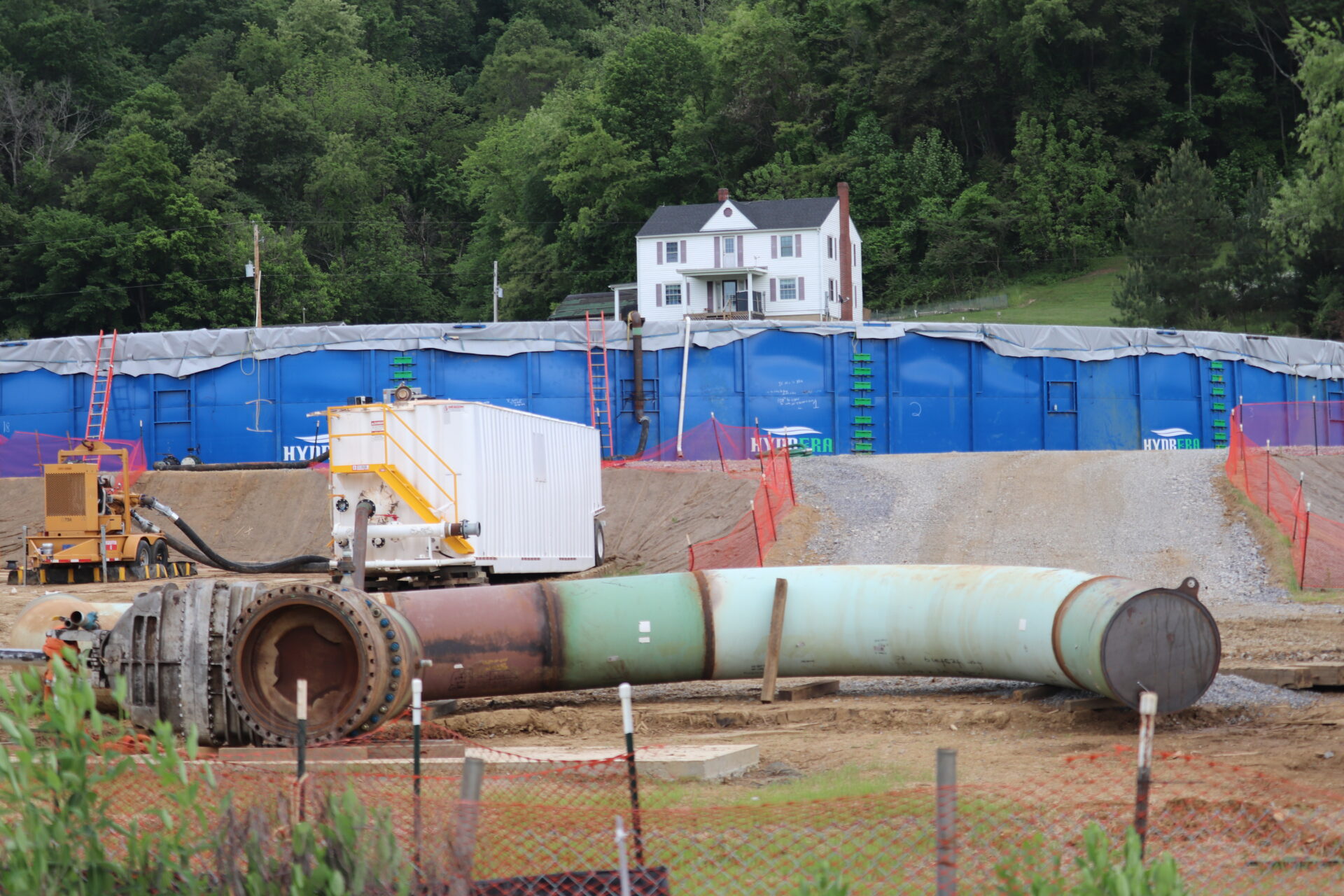Updated on Thursday, June 27, 2024 at 4 p.m.
Testing equipment on the Mountain Valley Pipeline (MVP) experienced a rupture in southwest Virginia this month, days before it asked for and received permission to begin carrying natural gas.
The June 4 rupture involved an 8-inch connecting hose. According to a report Equitrans filed to Virginia’s DEQ, the release lasted for 15 minutes until a valve was closed, shutting it off.
The rupture happened after hydrostatic testing of the pipeline, where water is pumped through it at high pressure to demonstrate its integrity. The hose was used to release water from the pipeline section under inspection, following the testing, when the hose failed.
Equitrans Midstream, the pipeline’s builder, reported the incident to the Virginia Department of Environmental Quality (DEQ), the Virginia Department of Emergency Management and the Virginia Department of Health’s Office of Drinking Water.
Residents and community groups have been concerned about the project’s safety since a May 1 rupture released a large volume of water and badly damaged a section of the 42-inch main pipe.
They also have expressed anger that Equitrans Midstream didn’t let them know when the pressure testing took place or about the unintentional releases of water, which in some cases caused property damage. A landowner in Bent Mountain, Virginia, reported the May 1 incident.
The June 4 rupture, at Elliston, Virginia, took place 10 days before the pipeline began operating.
Neither the company nor its regulators have shared the details of a laboratory analysis of the pipe that was damaged on May 1. They also did not elaborate on what happened on June 4 and how much water was released.
The DEQ report categorizes the incident as an “unauthorized discharge of pollutant(s)” and identifies the pollutant as non-potable water.
The incident may have affected water quality in the Roanoke River, which supplies drinking water to three municipalities in the area.
The environmental compliance report noted “the South Fork Roanoke River was turbid upstream and downstream,” but added that the condition “was believed to be caused from overnight rain events within this area.”
Natalie Cox, a spokeswoman for Equitrans Midstream, said the 303-mile pipeline “has been safely flowing gas since June 14, 2024.”
Cox said all appropriate state and federal agencies were notified of the incident. It was also reported in a weekly environmental compliance report the company filed with the Federal Energy Regulatory Commission (FERC).
That document appeared in FERC’s public docket on June 20. The DEQ investigation of the incident was closed the next day.
Cox said Tuesday all restoration activity related to the June 4 rupture had been completed.
Celeste Miller, a spokeswoman for FERC, said the commission was notified “shortly after the occurrence.” Miller referred safety questions to the Pipeline and Hazardous Materials Safety Administration, which is part of the U.S. Department of Transportation.
FERC approved the pipeline to begin service on June 11, a day after Equitrans Midstream declared it “mechanically complete.” The commission published a summary of a phone call between officials at FERC and PHMSA, and FERC noted that PHMSA had no objections to granting the approval.
Since construction started on the pipeline in 2018, residents have complained about its impact on their groundwater and drinking water and the erosion due to the steepness of the slopes.
Equitrans Midstream has said it complied with every requirement to complete restoration.
**Editor’s Note: This story was updated to clarify that the failure was in an 8-inch hose, not the pipeline itself.
